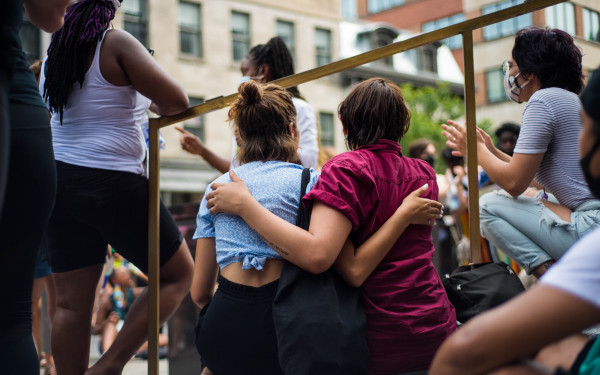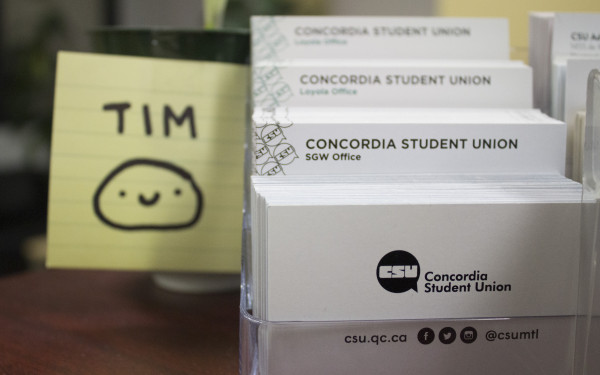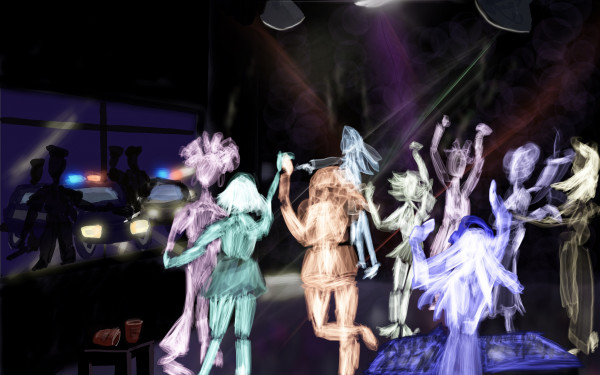Love Letters to Survivors Provides Support to Survivors of Sexual Assault
Taking Back Our Voices and CASE Collaborate on Survivor-Centric Event
“How do you have community accountability without a sense of community?” asked Faith Paré, creative writing representative at the Concordia Association of Students in English. When an institution fails to support survivors of sexual violence and harassment, Concordia students take it upon themselves to create the change they are so desperately fighting for.
Paré’s question was inspired by Meredith Marty-Dugas, a mentor of hers.
Together with Taking Back Our Voices, a student run group conceived out of Loyola campus last year, CASE presented ‘Love Letters for Survivors’ last Tuesday at the Art Hive on the fifth floor of the EV building.
The event invited students to take part in a reflective afternoon of tea and snacks while writing heartfelt letters of support to allies and survivors of sexual assault.
“We wanted to do an event that gave a bubble of care, support, and joy amidst exam season,” said Paré.
Tables were spread with various art-making tools; colorful construction paper, glue sticks and colored pencils. A collection of around ten or so allies sat around the tables, composing letters as music hummed in the background.
It Takes All Of Us, Concordia’s online sexual violence training, launched in August this year. Still, many students feel that Concordia does not do enough to help survivors of sexual assault on campus.
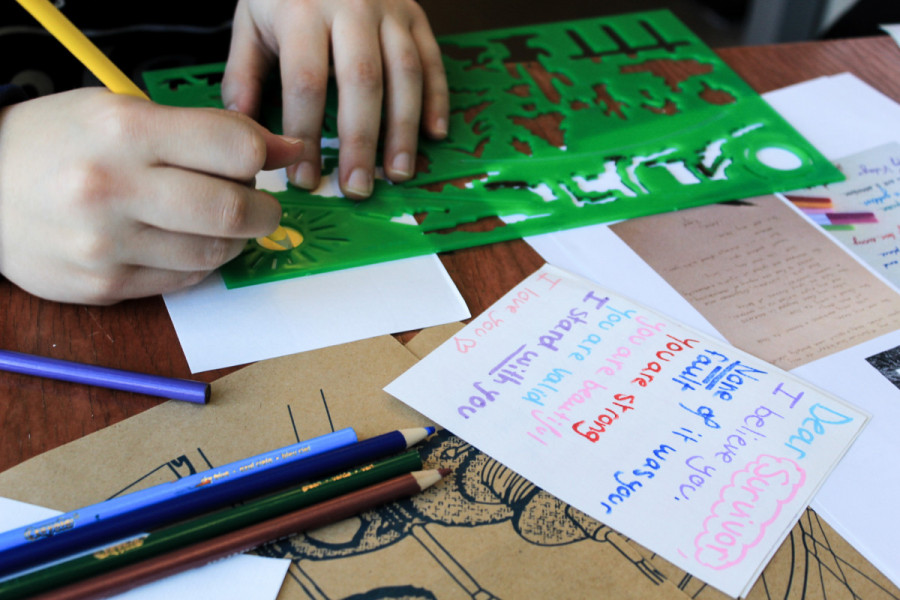
The process of filing a complaint is lengthly, and taxing on survivors.
‘Love Letters to Survivors’ was a amalgamation of some of Concordia’s most active student sexual assault activists, explained Paré. All organizers are involved in proposing new policies or creating grassroots initiatives within student action groups.
“While all those initiatives are crucial,” Paré continued, “we came together for this event to imagine what activism could look like when it’s centered on sharing appreciation for survivors that we’re advocating for. We want to demonstrate that care is transformative.”
In 2018, many survivors of sexual assault in the creative writing department came forward and filed complaints against the university. Even with official complaints, students do not get to know if their assailant will still be teaching at the university in the next semester.
Related: Former Concordia Sexual Violence Survivor, CRARR Denounce Online Consent Training
“There’s a feeling of betrayal,” explained Paré. “Having systems that claim to protect you aren’t so great at doing that, often. Survivors feel that way.”
Attendees sat around the tables, chatting, snacking and working on their letters. Once they’d finished, attendees dropped their letters into decorated boxes. After the event, the letters will be handed out to survivors and allies whose’ stories were printed and shared on the tables for attendees to read.
Away from the crowd, the ‘Chill Space’ offered a respite from the conflicting emotions and discomfort that may spark during the event.
Lucky Santos, the active listener for the event, was ready to provide an active ear.
“Sexual violence can take away your agency, and can make you feel alone, and these feelings can come up no matter how far you’re ‘healed’ or whatever.” —Lucky Santos
“As a survivor of sexual violence, I find it’s really helpful to be able to provide support for other survivors,” said Santos.
Being an active listener is somebody who listens non judgmentally, explained Santos. Their job is to provide space for anybody who “needs to talk, be listened to, be believed [or] process anything.”
With them, they’d brought a toolkit of sensory objects that could be offered to somebody feeling triggered by the event, or in need of grounding.
“Sexual violence can take away your agency, and can make you feel alone, and these feelings can come up no matter how far you’re ‘healed’ or whatever,” they added. “Working with survivors and helping other survivors at any points can help alleviate those problems.”
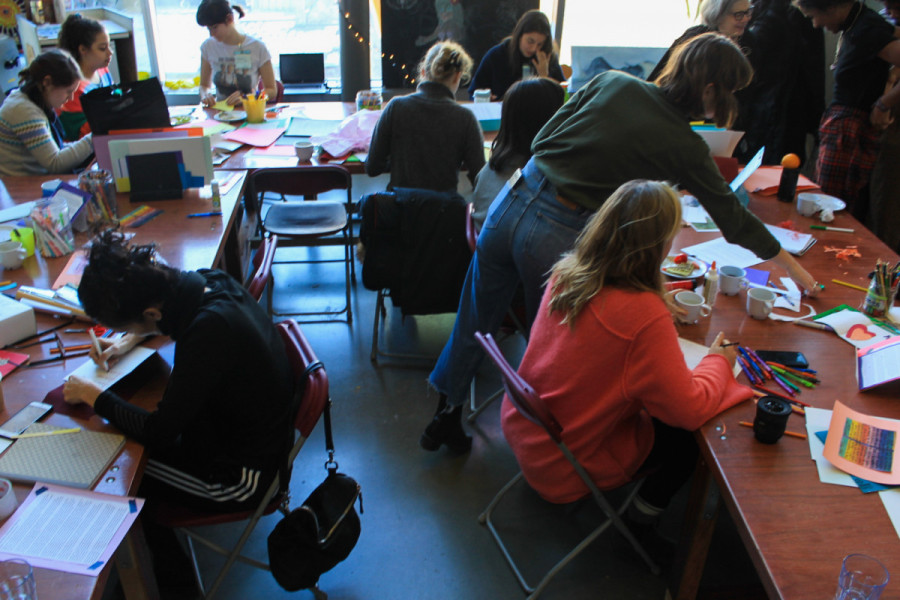
Santos completed active listener training at the Center for Gender Advocacy. They said that many of the survivors they have provided support for in the past have went on to become active listeners themselves, creating a community of collective healing and support for survivors.
Alumni speak up
“It really sucks that Concordia is as toxic as it is,” said Melanie Proulx, author and Concordia alumna who attended the event. When she saw the event pop up on her Facebook feed, she knew she had to drop in.
It was encouraging to see so many people there, she said.
“I know personally, when I read other stories of other survivors, it’s often triggering,” Proulx said. “But it’s a risk that I’m willing to take to help other survivors.”
The former vice president of external affairs at CASE, Proulx was excited that the association is beggining offering events like this one, taking sexual violence and survivor support more seriously in their community efforts.
“Part of the reason I was impressed by the event was because it gave survivors a human connection,” said Proulx. “Sexual violence trauma is isolating, and so events like this are super important to help survivors not feel alone.”
“[Survivors] often feel so unsupported by an administrative system that they feel that no one is listening to them, so they feel like, why bother coming [to school] any more?” said Paré. “[They] step away from, especially in creative writing, their dreams. Things they’ve aspired to and put a lot of time and work and effort and sweat and blood and tears into.”
“We wanted to show that activism is collective, it’s accessible, it can be very joyous even amongst the druery of the institution,” Paré added. “There are many ways to do it.”
A previous version of this article incorrectly sourced a quote. The Link regrets this error.

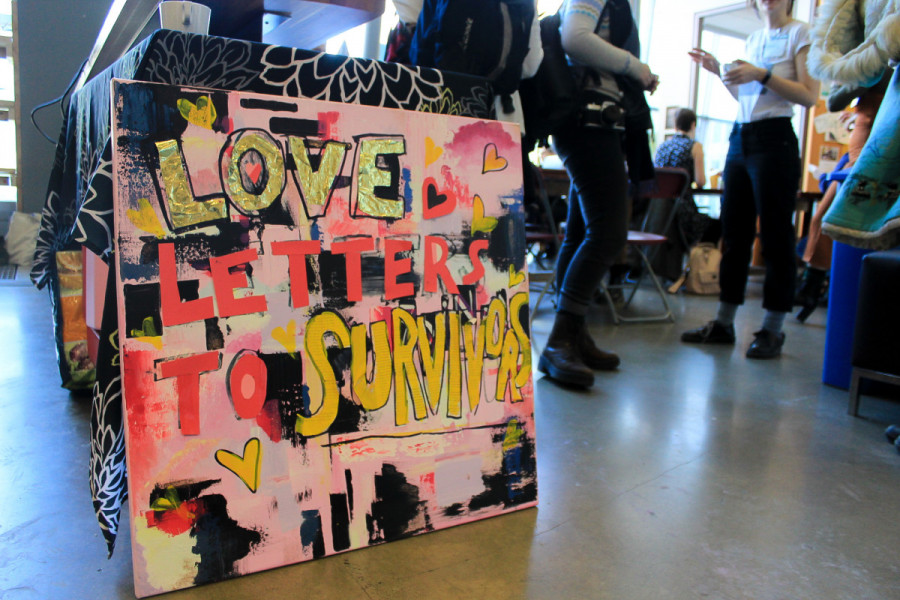


_600_375_90_s_c1.jpg)
